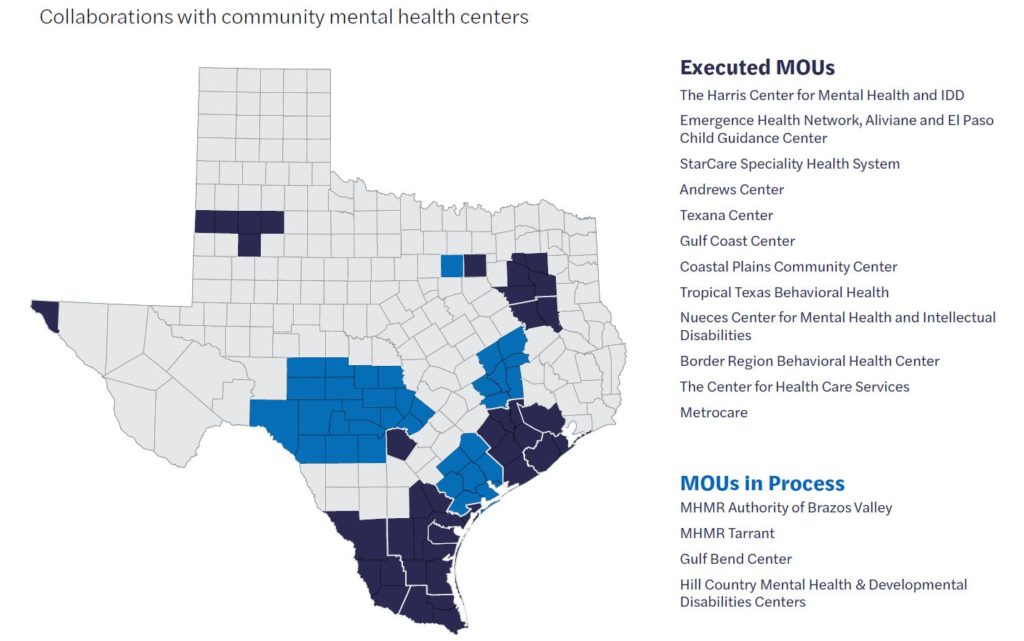Workforce Expansion
The Consortium will support the expansion of the child and adolescent psychiatry workforce in Texas through two initiatives: The Community Psychiatry Workforce Expansion (CPWE) and the Child and Adolescent Psychiatric (CAP) Fellowships.
The Community Psychiatry Workforce Expansion (CPWE)
The goals of the Community Psychiatry Workforce Expansion are to:
- Collaborate and coordinate with community mental health providers to expand the amount and availability of mental health care resources by developing training opportunities for residents and supervising residents at facilities operated by LMHAs and community mental health providers; and
- Increase the number of Texas-trained psychiatry residents who work in the public mental health system upon completion of their residencies.
CPWE funds community psychiatric workforce expansion projects through partnerships between HRIs and community mental health providers. The partnerships provide training opportunities for residents under an academic medical director provided by the HRIs. To date, HRIs are involved with the following community mental health providers: 16 of the 39 LMHAs state-wide, Aliviane and the El Paso Child Guidance Center in El Paso, and JPS community health settings in the UNTHSC service area.

Child and Adolescent Psychiatric (CAP) Fellowships
The goal of the Child and Adolescent Psychiatric Fellowships is to increase the number of medical professionals in Texas who specialize in the diagnosis and treatment of psychiatric and associated behavioral health issues affecting children and adolescents and thus, over time:
- Increase the ratio of child and adolescent psychiatrists to the child population;
- Reduce the number of designated mental health professional shortage areas; and
- Reduce wait times to see a child and adolescent psychiatrist.
The CAP Fellowship initiative has allowed HRIs to add fellowship capacity within their departments of psychiatry. Fellows who start their two-year child and adolescent psychiatry training program during this biennium will complete their training during the next biennium. In order to attract fellows and institutions to participate in the program, the funding for trainees must be secured through the completion of the training experience and cannot be dependent upon the funding of the Consortium in the next legislative session. Doing otherwise would place the fellows’ training experience in jeopardy, resulting in potential fellows not selecting Texas training positions and the institutions being prevented from establishing these fellowships.
Therefore, full funding for the two-year fellowships is obligated to the sponsoring institution at the beginning of the fellow’s training experience. If the trainee does not complete the program, the unused funds will be returned to the TCMHCC. To date, seven additional first year and one second-year CAP Fellowship positions have been filled. The HRIs are anticipating that 12 additional CAP positions will be filled in the existing programs in 2021. In addition, new fellowship programs will be established in 2021 and 2022 at TTUHSC, UTRGV, UTHSCT, and UNTHSC. This will make available a total of 19 additional fellowship positions over the biennium. To help put this number into perspective, in 2019 the Texas HRIs had a total of 18 funded fellowship positions.
Workforce Chair
Steven Pliszka, MD, UT Health San Antonio
